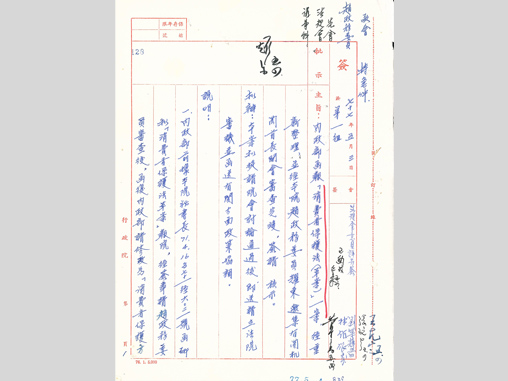1984.06.01 - 1989.06.01
A native of Fenghua, Zhejiang, Yu Kuo-hwa also served as director-general of the Central Trust of China, chairman of the Bank of China, minister of finance, central bank governor, director of the International Monetary Fund, director of the Asia Development Bank, minister without portfolio, minister of the Council for Economic Planning and Development, and senior adviser to the president.
Important Events
- 1986.01.16The Executive Yuan Council passes a plan for VLSI (very large-scale integration) circuit manufacturing, setting the foundation for developing semiconductor technology in the ROC.
- 1987.07.15Martial law is lifted in Taiwan.
- 1987.11.02Local residents are permitted to visit relatives in mainland China.
- 1988.01.01The ban on establishment of new newspapers is lifted, and restrictions on the number of pages per issue are relaxed.
- 1988.01.13President Ching-kuo Chiang passed away. Vice President Teng-hui Lee became the 7th president of the Republic of China and proclaimed an emergency settlement order.
- 1988.05.05The Executive Yuan Council passes the draft of the Consumer Protection Law, which is later approved by the Legislature on January 11, 1994 and promulgated by the president on the same day.
- 1988.12.22The Executive Yuan Council passes the draft of the Farmer Health Insurance Act, later approved by the Legislature on June 6, 1989 and promulgated by the president on June 23, 1989.
- 1989.01.26The Legislature passes the Act Governing the Voluntary Retirement of the First-Term Senior Congressperson, ending a system in which parliamentarians had not faced re-election for decades.
- 1989.05.04The Executive Yuan Council passes a draft amendment to the Handicapped Welfare Act, approved by the Legislature on January 12, 1990 and promulgated by the president on January 24, 1990. Later renamed People with Disabilities Rights Protection Act, this law stipulates that people with disabilities must make up at least 2 percent of the work force at government agencies, public schools, and state businesses that have over 100 employees.




